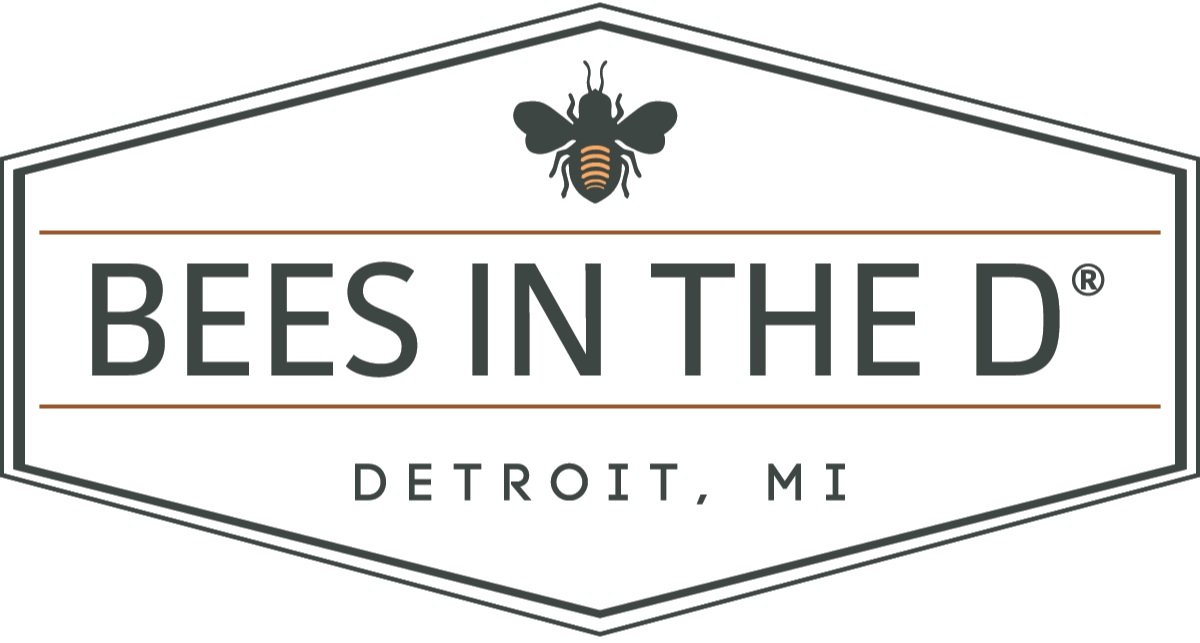A DIFFERENT KIND OF HIGHWAY COMING TO THE MOTOR CITY
Katherine Pertuso
Spartan Online Newsroom
As Detroit enters a new renaissance, many entrepreneurs have taken advantage of this period of innovation. This includes Brian Peterson, a fifth grade teacher from Rochester and beekeeping enthusiast. He plans on starting one of the first bee highways in the U.S., a system of bee hives on rooftops of local businesses to help pollinate the plants of the “urban farming” movement and produce honey. He and his husband, also named Brian, have started a nonprofit organization “Bees in the D”.
It all started when Peterson was chosen to take a course on beekeeping.
“I was sponsored to gHoneyBeePullQuoteo to a class called beekeeping across the curriculum,” said Peterson. “It was a two-week crash course on beekeeping in the classroom and how to educate the kids. So I caught the bug as I like to tell people, and since then I’ve loved it.”
He said at first, his beekeeping only made it as far as the women’s local garden club in Rochester, but soon got the urge to move to the city. However, before Peterson could do that there were a few legal gray areas that needed to be addressed.
“There are no ordinances really for or against it,” said Peterson. “There are people in the city limits that do beekeeping and it’s never really been an issue.”
There are currently ordinances in the works Peterson hopes will have the language to legalize beekeeping. By using examples of pioneers of urban beekeeping like New York City, San Francisco, Madison and more, he wants to set the precedent that urban beekeeping is beneficial and safe. Peterson said he believes the benefits to the community outweigh the safety concerns of some.
“Bees have been a symbol of resurrection throughout history. They’re also a signal of being prosperous and successful and I feel that mirrors Detroit beautifully. It’s a resurrection right now,” said Peterson. “Detroit had a reputation as Motor City, then it had a reputation that wasn’t so desired, but now we’re seeing another push of Detroit becoming an art mecca, a technology mecca, a greening and gardening mecca.”
Honeybees would not only benefit Detroit’s community, but agriculture as a whole said Peterson.
“Your greenery whether it’s vegetables, whether it’s flowers, you will have a much higher yield because of the pollination of bees,” Peterson said. “Without the pollinators you can still get fruit and flowers but the plant is weakened so that’s obviously a huge benefit as well.”
The NRDC released a report in 2011 stating, “Pollinators transfer pollen and seeds from one flower to another…Cross-pollination helps at least 30 percent of the world’s crops and 90 percent of our wild plants to thrive. Without bees to spread seeds, many plants–including food crops–would die off.” Some of the fruits and vegetables pollinated by honeybees include apples, oranges, blueberries, carrots, avocados and almonds.”
Honeybeefoods2While putting honey bees in urban areas is a safety concern for many, Peterson said he hopes to break stereotypes of bees.
“That’s the biggest challenge that beekeepers like myself face and that is why my main passion is educating people that not only are the bees extremely important to our livelihood, our food, our everything, they’re also not as horrible as you may think,” said Peterson.
Peterson explained that not only are honeybees docile, but are often mixed up with other species.
“When honeybees sting, unlike hornets and wasps, they’re stinger gets stuck within their skin, it rips their abdomen and they die,” said Peterson. “It’s different from hornets that can sting repetitively and really have nothing to lose out of the whole process.”
In the end what Peterson seems to value above all else is bringing up Detroit, being a pioneer and changing wasted space into something useful.honeycomb
“Honey bees and an urban environment can have a symbiotic relationship,” said Peterson. “We can function together. What I love about that aspect of it is most of the spots that I’m eyeing are wasted space. Rooftops where nothing is happening or vacant lots; areas that are for the most part not being used so that’s the beauty of it.”

